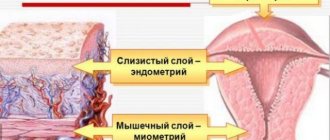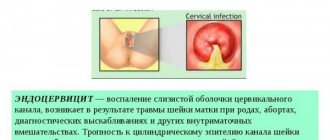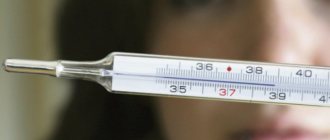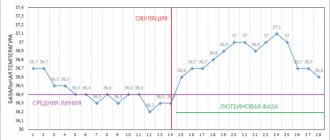Sometimes a pregnancy has to be terminated. This happens at the request of the woman, due to medical or social reasons. There are several methods used to free the uterus from fetal material. In the early stages, drug interruption, vacuum aspiration or curettage (curettage) are most often used. But despite the difference in technology, they give the same effect and also have similar consequences. For example, the temperature often rises after an abortion. Only a doctor can tell what this is connected with and whether it has any health risks. And it is important for a woman to notice extraneous symptoms in time and seek medical help.
Causes and mechanisms
The temperature reaction is one of the protective mechanisms aimed at restoring normal functioning of the body. Under such conditions, immune processes are more active, cellular interactions are stimulated, and biological substances are produced (prostaglandins, leukotrienes, etc.). This makes great natural sense - it is necessary to ensure rapid healing of damage or eliminate foreign factors from the body. This is why the temperature rises during many inflammatory processes of an infectious or autoimmune nature.
Something similar happens after an abortion. After all, the uterine cavity, especially in the case of surgical termination of pregnancy (aspiration, curettage), is an almost continuous wound surface. Alteration, i.e. tissue damage, provokes the production of cytokines, which not only have a local effect, but also affect the thermoregulation center in the medulla oblongata, which leads to a slight increase in temperature. This is a completely normal phenomenon and should not cause concern.
But if the temperature rises to high numbers, then you should think about possible complications after termination of pregnancy. As a rule, we are talking about incomplete abortion or endometritis. But other situations are also possible that are not at all related to the previous manipulation, for example, a respiratory infection. Therefore, to find out the cause of the temperature reaction, you should consult a doctor.
After an artificial termination of pregnancy, the temperature may rise even normally, but cases of a complicated course of the post-abortion period are not uncommon.
Fever after medical abortion
Many women are interested in the following questions: What should be the normal temperature after a medical abortion? How long can a fever last? What temperature is dangerous?
We will try to answer these questions in the current section.
Low-grade fever (37.0-37.5 C) after a medical abortion can persist for several weeks and should not cause alarm, and does not require treatment.
This temperature is maintained due to the increased content of progesterone in the woman’s blood.
Progesterone after termination of pregnancy may remain elevated for another 10-14 days, but its concentration gradually decreases to a minimum level.
Your attention should be drawn to the fact that a rise in temperature above 38.0 C and persistence of high numbers for more than 1 day may be evidence of an infectious-inflammatory process.
Therefore, if this symptom appears, consult a gynecologist as soon as possible.
You should not try to bring down the temperature with medications or other means - your efforts will only delay the diagnosis of the inflammatory process and aggravate the condition of the body.
If comprehensive treatment of the infectious-inflammatory process is not started on time, it threatens such a serious complication of abortion as infertility. Moreover, adequate and timely therapy practically reduces to zero the possibility of developing infertility.
10-14 days after the start of bleeding, you must contact a gynecologist for a control ultrasound. This is necessary to ensure that parts of the fertilized egg have completely left the uterine cavity.
The preservation of fragments of the fertilized egg in the uterine cavity or the presence of blood clots is a favorable substrate for the proliferation of pathogenic microorganisms, which can lead to serious consequences.
11,017 , 2
Source: https://farm-expert.info/information/temperatura-posle-aborta/
Symptoms
As in other situations, the origin of a particular symptom can only be determined by conducting a full diagnosis. And it starts with fairly simple methods. First, the doctor determines what is bothering the woman and details her complaints, and then conducts a clinical and gynecological examination. According to the anamnesis and thermometry performed by the woman on her own, the temperature after an abortion can be of a different nature:
- By size: subfebrile (37–38 °C), febrile (38–39 °C), pyretic (39–40 °C) and hyperpyretic (above 40 °C).
- By type of curve: constant, laxative, hectic.
- By duration: short-term, long-term.
Of course, a feverish state has a negative impact on everyday life. The woman’s general well-being deteriorates, which is expressed in the following:
- General weakness.
- Headache.
- Increased fatigue.
- Sweating.
If the temperature is low, then these symptoms may be absent or mild. But you should pay attention to other signs that indicate processes in the uterus itself.
Norm
So, in the period after a surgical or medical abortion, the uterine cavity heals and menstrual function is restored. This is accompanied by certain changes in the body that cannot be ignored. Firstly, you should immediately reassure women by saying that an increase in temperature to 37.5 °C is the norm. It can be like this from several days until the onset of the first menstruation. Secondly, common signs will be:
- Bloody vaginal discharge, gradually decreasing.
- Discomfort in the lower abdomen or mild nagging pain.
- Unpleasant sensations in the chest.
These symptoms are due to the restoration of the size of the uterus and the removal of endometrial remnants, as well as changes in hormonal levels that occur as soon as the body becomes aware of the termination of pregnancy. Pain and discharge may last about 10 days, but they certainly tend to decrease and pass. Therefore, a woman should not worry about them, but she must undergo a control gynecological examination so that the doctor can assess how the recovery process is proceeding after an abortion.
The normal course of the post-abortion period is characterized by a slight increase in temperature, but this reaction cannot persist after the first menstruation.
Incomplete abortion
Among the complications of artificial termination of pregnancy, incomplete abortion should be noted. This is a situation when the remains of the fetus (usually its membranes) are retained in the uterine cavity. In this case, the organ cannot contract adequately, which leads to the following:
- Prolonged bleeding (usually more than 2 weeks).
- Drawing or cramping pain in the abdomen.
- Increased body temperature.
Upon palpation, the uterus has a soft consistency and dimensions exceeding the norm for the period after an abortion. This creates additional risks for a woman's health, as it can lead to progressive blood loss, disorders of the blood coagulation system and infection. Therefore, a woman with similar symptoms should contact a medical facility for re-evacuation of the uterine cavity.
Endometritis
If the temperature after an abortion rises above 38°C, this is a sure sign of the development of infectious inflammation in the uterus. This can be facilitated by the use of non-sterile instruments (more often in cases of criminal termination of pregnancy) or non-compliance with personal hygiene rules after manipulation. And the direct source of endometritis is a microbial factor: Escherichia coli, streptococcus, staphylococcus, etc. Inflammation of the uterus is accompanied by the following changes:
- Pain in the abdomen and lower back.
- Vaginal discharge with an unpleasant odor.
- Hyperthermia.
- Violation of general health.
The uterus is painful and enlarged on palpation. And the bleeding, which should have ended, still continues. In such a case, the woman requires hospitalization with antibacterial therapy.
Respiratory infection
It also happens that the spotting has stopped, the pain in the lower abdomen does not bother you, and your period has already arrived, but a fever has appeared. Then, most likely, you should look for the cause among extragenital diseases. Quite often after an abortion, various respiratory infections are observed, the appearance of which is associated with a decrease in the immunological reactivity of the body. But then, along with the elevated temperature, completely different symptoms appear:
- Runny nose, nasal congestion.
- Sore throat.
- Cough.
They indicate an inflammatory process in the upper respiratory tract, but if not treated in a timely manner, the process can spread lower: into the bronchi or lungs.
Taking into account all the symptoms – gynecological and general – helps to identify the problem in a timely manner and suggest the cause of the fever.
Can there be a fever after an abortion?
In patients after an abortion, the uterus bleeds for several days in a row. In this case, there is a risk of developing infectious and inflammatory complications. When they occur, the temperature may rise and the general condition may worsen. At the same time, uncharacteristic vaginal discharge with an unpleasant odor may appear.
But an increase in temperature does not always indicate the development of pathological processes. A slight increase in temperature over 1-2 days is not a symptom of problems. But if the condition does not return to normal on the 3rd day, then it is necessary to find out what factors could lead to the development of complications.
Additional diagnostics
To say exactly why the temperature increased after termination of pregnancy, it is necessary to conduct an additional examination. The woman will have to undergo laboratory and instrumental tests, the results of which are necessary for the doctor to make a correct diagnosis. These include the following:
- Complete blood count (leukocytosis, increased ESR).
- Blood biochemistry (acute phase indicators, coagulogram, immunoglobulins).
- Bacteriological analysis of secretions.
- Determination of microflora sensitivity to antibiotics.
- Ultrasound of the uterus.
In most cases, this is enough to determine the problem causing the temperature increase. Based on this, the doctor will formulate a treatment strategy to eliminate the pathology and give recommendations for subsequent life. And in order to prevent further abortions, a woman should be reminded of the importance of contraception as an effective method of planning pregnancy.
Termination of pregnancy can be perceived by the body in different ways. In some cases, everything goes more or less successfully, and health is quickly restored. However, some women can take years to bring their body back to normal. Their health was so seriously compromised. Factors that influence the consequences after an abortion include the timing of the woman’s pregnancy, the method of abortion, based on the timing at which the pregnancy can be terminated, and the qualifications of the doctor performing the operation. But the main factor will always be the woman’s health and how quickly her body starts the rehabilitation process.
The article “” provides a list of diseases and circumstances in which abortion is extremely undesirable. In those cases, a woman needs to think carefully about whether it is worth exposing her body to serious risk. If a pregnant woman has firmly decided to terminate an unwanted or unsuccessful pregnancy, she should be aware of the possible consequences after an abortion. General (also given in the article “”) and specific, such as fever after an abortion, pain in the lower abdomen after an abortion, nausea after an abortion, pain in the chest after an abortion and others. This article will talk about which consequences after an abortion are normal and which are a symptom of complications.
General consequences after abortion
Depending on the method of termination of pregnancy, the severity of the consequences after an abortion also varies. So what post-abortion consequences may be present during and after the operation?
A special place in the discussion of this issue should be given to the surgical method of termination of pregnancy. This method is used when the fetus is already sufficiently attached to the wall of the uterus. In this case, serious instruments are used and the operation can be very traumatic. Therefore, the consequences after a surgical abortion can be extremely dangerous:
- Damage to the uterine wall. The instruments touch the mucous membrane and can even pierce the wall, which has a good chance of ending in amputation of the uterus.
- Damage to blood vessels. The consequences after an abortion are the same as with injury to the uterus. There is severe bleeding.
- Intolerance to anesthesia. Doctors are required to check this point before any type of anesthesia. Otherwise, malfunctions in the functioning of important organs may occur.
- Infection. Possible during and after surgery.
Medical abortion is considered the most gentle abortion procedure, but it still carries some relatively minimal danger.
Here are the consequences you can expect after an abortion:
- Post-abortion nausea caused by taking abortion drugs. By-effect.
- Ineffective abortion. The termination of pregnancy has not occurred. Surgery is required.
- Pain in the lower abdomen after an abortion. Consequence of severe bleeding.
- Heavy bleeding caused by damage to the walls of the uterus or insufficient rejection of the fetus.
- Infections due to bleeding.
And, of course, it’s worth talking about what a woman can expect. They are similar to the classic surgical method and medication. There are complications of anesthesia, and an ineffective abortion, requiring additional curettage and damage to internal organs (minimal), and bleeding, and pain in the lower abdomen after an abortion.
First abortion. Consequences
The first abortion (consequences) means the termination of pregnancy in a nulliparous woman. Very often in Russia, young girls who “accidentally” become pregnant decide to resort to abortion. But such a decision carries with it dire consequences. 75 out of 100 women with a terrible diagnosis of infertility had an abortion during their first pregnancy. Girls should understand how dangerous the first abortion is, the consequences of which are not worth freedom from maternal responsibilities.
The first thing to mention is how to terminate the first pregnancy if absolutely necessary. It is very important to choose the most gentle method. Medical abortion. It is carried out until 7 weeks after the end of the last menstruation.
A girl who notices the absence of menstrual bleeding should determine the reason for this absence as soon as possible. And draw sudden but objective conclusions. The consequences will be minimal. What are the consequences after a mini abortion (vacuum aspiration)? This is also a gentle method used in the first trimester of pregnancy. If it is “successful” in the early stages, the girl will be able to quickly go through her menstrual cycle and think about contraceptive methods so as to never have an abortion again.
Surgical curettage is very dangerous during the first abortion. The cervix of a nulliparous girl is very narrow and dense. Its artificial or instrumental dilation may result in the cervix losing its tone and being unable to bear a fetus in the future. Abortion is stressful for a woman’s reproductive system, especially the first abortion.
The consequences of the first interrupted pregnancy in a nulliparous woman are also hormonal imbalances, which lead to obesity, skin problems, irregular and painful menstruation, severe pain in the lower abdomen after an abortion during menstruation, and more.
If your stomach hurts after an abortion
Abdominal pain after an abortion is quite common. However, you should know which pains are reasonable and expected, and which are symptoms of complications and possible diseases. If your stomach hurts after a medical abortion, then most likely this is a natural process of movement of the fetus and amniotic parts in clots along the genital tract. This is quite a painful process. Therefore, if your stomach feels tight after an abortion, there is no need to worry again. These can be spasms and artificial contractions in the uterus, which provoke miscarriage. You should be concerned if your stomach still hurts after an abortion after a long time has come.
Pain after surgical abortion is rare. Basically this is the feeling when after an abortion the stomach pulls. Aching pain indicates contraction of the uterus to its original size. Such pain is normal and expected. When your stomach hurts after a surgical abortion weeks later, there is reason to think about a number of unpleasant moments. During the operation, there is a high probability of introducing vaginal infections into the uterus. This will result not only in abdominal pain, but also high fever after an abortion. All this is a consequence of a disease such as endometritis (inflammation of the uterine lining).
Pain in the lower abdomen after an abortion can be caused by too early onset of sexual activity after an abortion, contraindicated physical activity, trauma to the uterine wall and cervix, and remnants of fetal parts. So if you still have stomach pain a week after a surgical abortion, watch for other symptoms and go to the hospital immediately.
What to do if the temperature rises after an abortion?
Some women develop a fever after an abortion.
This can happen either immediately or after a certain number of days. The temperature rises to 37.5º and further. After an abortion, the temperature is immediately elevated, but not high. In some cases it reaches 40º.
There are several reasons if the temperature rises after an abortion:
- Inflammation began in the uterus.
- Parts of the fetus or egg remain in the uterus. This happens in cases where the doctor’s work is performed poorly. However, this picture is also observed after an operation performed with the help of medications, since the egg broke and did not come out entirely, and the remaining parts of both the fetus and the egg rot inside the uterus, which provokes an increase in temperature. In such a situation, the woman urgently needs to be hospitalized and cleaned.
- Colds. In this case, antibiotics are prescribed to bring down the temperature.
Breast pain after abortion
Many women complain about their breasts after an abortion. The condition of the mammary glands after termination of pregnancy can be very difficult. This is due to the fact that from the very beginning of pregnancy, the mammary glands prepare for the future feeding of the baby, increase in size, and become fuller. Breasts after an abortion can recover very quickly, but only in cases where the restructuring is not so serious.
What to do if your breasts hurt after an abortion? Firstly, it is necessary to start visiting a mammologist after the operation.
. This specialist will determine the condition of the mammary glands and quickly find out why the breasts hurt after an abortion. Firstly, it may be a sign of an ongoing pregnancy. This symptom is also accompanied by nausea after an abortion. Also, chest pain after an abortion foreshadows mastopathy - stagnation of milk in the mammary glands. The most terrible consequence is the formation of tumor nodes. The risk of breast cancer increases with each terminated pregnancy. That is why timely and systematic consultation with a mammologist is especially urgent after an abortion.
As a result, if your breasts hurt immediately after an abortion, then this is most likely a normal process of its restoration to its previous shape. If the pain continues, contact a specialist immediately. Prevented ones will help avoid serious complications.
After an abortion, temperature is 37 or higher
What consequences after an abortion speak especially clearly about problems in the body? These include temperature after an abortion. A temperature of 37 and above, lasting up to 3 days after surgery, is a completely reasonable phenomenon. Any abortion is associated with some inflammation. Only this inflammation should ideally be normalized by the body. If this does not happen, the temperature after the abortion continues. Inflammatory reactions and infections—these are the reasons why an elevated body temperature persists.
Abortion is associated with trauma to the walls of the uterus. As a result, cells appear that are aimed at tissue repair. This is fraught with inflammatory processes, which increase the temperature after an abortion. And what are the consequences after an abortion (temperature) is a symptom of severe complications. After an abortion, the temperature remains at 37 and above a month after the operation.
This is a sign of a blooming infection. An elevated temperature after an abortion is also accompanied by yellow discharge, itching, and pain in the lower abdomen. You should also be tested for sexually transmitted infections. They are also accompanied by elevated temperature after abortion.
The temperature may appear on the first day after the abortion. Why is it rising? This is the body's natural response to local trauma.
Causes of temperature after termination of pregnancy
In the first 2 days after an abortion, an increase in temperature to low-grade levels is possible due to the body’s reaction to the intervention. In some patients, this is how the thermoregulation center reacts to painkillers that are used during surgery, or to drugs that are prescribed to contract the uterus.
Among the reasons that provoke a general deterioration in health and an increase in body temperature are:
- chronic diseases that worsen after an abortion;
- addition of infection;
- poor-quality abortion (situations in which parts of the fetus, eggs, blood clots, mucous membrane remain in the uterine cavity).
In cases where the temperature rises above 37.7 °C or lasts for more than 3 days in a row, consultation with a gynecologist is required.
Warning! If you take antipyretics, you can temporarily normalize the condition, but the cause will not be eliminated. Therefore, self-medication can only lead to progression of complications.
Temperature after medical termination of pregnancy
After taking medications that cause miscarriage, the temperature should not rise. It is considered acceptable to raise it to no more than 38 °C once. In this way, the body can react to stress or drugs that cause uterine contractions.
If the temperature lasts for several days or rises above 38 ° C, you need to make sure that there are no parts of the embryo or fertilized egg left in the uterus. Infectious and inflammatory processes that develop as a complication of medical abortion can also lead to an increase in temperature. But such situations are rare.
Cases where the temperature after termination of pregnancy by medical methods does not exceed 37 ° C are not a cause for concern. Slight hyperthermia may occur due to the fact that high levels of progesterone remain in the body.
Temperature after curettage of a frozen pregnancy
In patients who were prescribed an abortion due to arrest of fetal development, an increase in body temperature after the abortion is possible. Hyperthermia occurs in cases where the dead embryo was in the uterine cavity for at least 2-4 weeks. In such a situation, a large amount of tissue breakdown products and various toxins were present in the uterus for a long time. Under their influence, the process of intoxication may develop.
During a surgical abortion, a wound surface is formed inside the uterus and many blood vessels are exposed. As a result, toxic substances enter the bloodstream, because the decaying fruit with its membranes is not removed immediately. A rising temperature indicates intoxication of the body. It should decrease in 1-2 days. If the situation does not normalize, then a doctor’s consultation is required.
A prolonged increase in temperature above 37.7 °C may be associated with infection of the uterus and the proliferation of pathogenic and conditionally pathogenic microflora in its cavity. In this case, it does not rise immediately after the abortion, but several days later.
Temperature after vacuum abortion
Complications rarely occur after a mini-abortion. A rise in temperature to low-grade levels on the first day may be the body's reaction to stress. If the condition does not return to normal, a doctor’s consultation is required.
If after a vacuum abortion the temperature rises above 37.5 °C, then a comprehensive examination is necessary. Such a reaction of the body may indicate that the infectious-inflammatory process has activated in the body. Lack of timely treatment can lead to a worsening of the situation, resulting in the progression of complications.
Reasons for fever after abortion
During an abortion, cells are destroyed and special molecules are released from them, which irritate local tissues, causing inflammation in them. Normally, these substances are always located inside the cell, providing digestion processes there, etc.
Once in the blood, they easily pass through the barrier that protects the brain from foreign protein molecules entering it. In the brain of every person there is a small area responsible for maintaining body temperature and preventing it from deviating from the norm. This area is called the thermoregulation center, and it is located in the hypothalamus. When its neuron cells are washed with blood containing a large number of those molecules that came out of the damaged cells, they cause a fever in the body.
This is why the temperature rises after an abortion. Quite long-term unfavorable changes also remain in the endocrine system after an abortion. In response to stress, the pituitary gland secretes a hormone that has a powerful stimulating effect on the production of glucocorticoids by the adrenal glands. Glucocorticoids are hormones that suppress any source of inflammation in the body. This process is a natural reaction to protect against inflammation and high temperature, but, unfortunately, it does not always work effectively.
What medications are often used after an abortion?
In order to decide on taking medications when the temperature rises after an abortion, you must first identify its specific cause. And only a doctor can determine it, after a thorough examination and clinical and instrumental research (ultrasound, smear, bacterial culture, etc.).
Causes for concern and mandatory consultation with a doctor may be heavy bleeding, the appearance of purulent discharge with a strong odor, pain in the lower abdomen, or an increase in temperature after an abortion of more than 37.5 degrees.
It is unacceptable to ignore such manifestations of inflammatory processes. Without appropriate treatment, the inflammatory process from the uterus can spread throughout the body, causing sepsis - a serious disease, often leading to death.
The general course of therapy after an abortion includes treatment with broad-spectrum antibiotics (at least 7 days), vitamin therapy and the use of hormonal contraceptives.
Drugs such as gentamicin, metronidazole, geneferon, netromycin, and amoxicillin are effective for treating infections after abortion. But you should not use them without a doctor’s advice, because... Each drug has its own limitations and contraindications.
To maintain the immune system after an abortion, the administration of complex “anti-stress” vitamins is indicated.
Hormonal contraceptives are used not only as a contraceptive. They help restore the hormonal levels of a woman’s body after an abortion.
To lower the temperature after an abortion, it is advisable to use paracetamol. This drug perfectly reduces fever and has an anti-inflammatory effect on the site of the disease. But aspirin cannot be taken to lower the temperature after an abortion, because it reduces blood viscosity and increases its clotting time. Its uncontrolled use can cause the development of uterine bleeding in the postoperative period.
To decide which medications to take after an abortion, it is best to consult your doctor.










